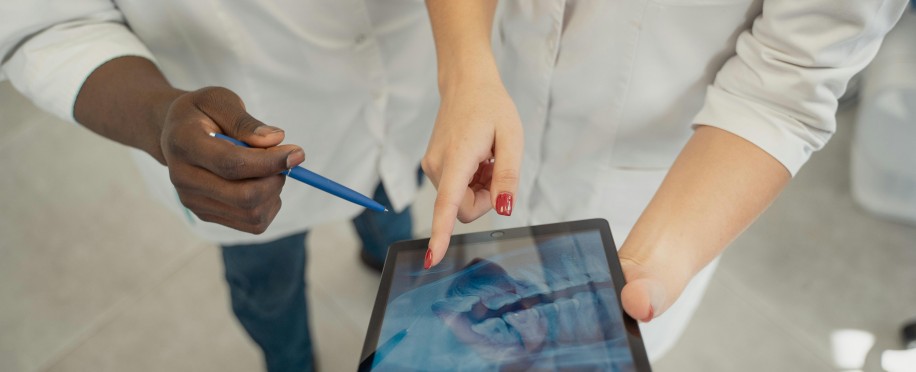Copyright © 2026 lpcentre.com All Rights Reserved. London Premier Centre For Training Ltd Registered in England and Wales, Company Number: 13694538
version: 3.0.1

Posted On: 7/3/2025, 10:30:18 PM
Last Update: 7/3/2025, 10:30:18 PM
Microsoft has unveiled a “path to medical superintelligence”—an artificial intelligence system that can diagnose complex medical conditions more accurately than human doctors.
Under the direction of British tech pioneer Mustafa Suleyman, the company's AI unit has created a system that mimics a group of knowledgeable doctors working on “diagnostically complex and intellectually demanding” cases.
Bringing AI and Clinical Practice Together
When tested on practicing physicians, Microsoft's O3 AI model and OpenAI's model produced an accuracy rate of only two out of ten, despite successfully solving eight out of ten diagnostic case studies and claiming to be less expensive than human doctors.
Microsoft has underlined that while its AI research may result in cost savings, doctors' roles should be supplemented by AI, not replaced. In a blog post announcing the research being submitted for peer review, the company stated that it doesn't think AI can help doctors navigate ambiguity and establish trust with patients and their families.
Moreover, the slogan “path to medical superintelligence” suggests a radical shift in the healthcare market, as superintelligence is a theoretical term that surpasses human intellectual performance, contrasting with artificial general intelligence (AGI), which matches human cognitive abilities.
Microsoft AI CEO Suleyman predicts that within the next decade, the system will be almost error-free, reducing the burden on global health systems, as he stated that the company is on a path to perfect AI operations.
Nevertheless, Microsoft has raised concerns about AI's ability to excel in the US Medical Licensing Examination, arguing that the multiple-choice tests favour memorising answers over deep understanding, potentially overstating the competence of an AI model.

Integrating Cutting-Edge AI Models
Like a real-world clinician, Microsoft is developing a system that requires specific tests for each patient's symptoms and uses a methodical approach, such as asking targeted questions and requesting diagnostic tests, to reach a final diagnosis.
Besides, using sophisticated case studies from the New England Journal of Medicine (NEJM) that Suleyman's team converted into interactive case challenges, Microsoft's strategy makes use of pre-existing AI models such as ChatGPT, OpenAI, Meta, Anthropic, Grok, and Google's Gemini.
Microsoft has developed a diagnostic orchestrator, an AI system that imitates a panel of physicians to determine the best tests and diagnoses for NEJM cases. When paired with OpenAI's advanced O3 model, the orchestrator has successfully solved over eight out of 10 NEJM case studies, outperforming human doctors' two out of 10 success rates.
By enabling patients to self-manage routine care, providing expertise across multiple medical disciplines, and providing clinicians with advanced decision support for complex cases, Microsoft's AI technology can improve healthcare.
The Diagnostic Orchestrator's Highlights
Microsoft has announced that its “orchestrator” system is not yet ready for clinical use, and further testing is needed to assess its performance on common symptoms. The system, similar to a real-world clinician, uses step-by-step measures to arrive at a final diagnosis, such as blood tests and chest X-rays for common symptoms like cough and fever.
Further, Microsoft transformed over 300 studies into interactive case challenges to test its approach using existing AI models. Microsoft then used a bespoke, agent-like AI system called a “diagnostic orchestrator” to work with the model, imitating a panel of physicians, to determine tests and diagnoses, ultimately resulting in a more accurate diagnosis.
Ultimately, Microsoft's AI technology has the potential to revolutionise healthcare by enabling patients to self-manage routine care and providing clinicians with advanced decision support for complex cases. However, further testing is needed on its “orchestrator” for clinical use.
Elon Musk claims that a "massive cyberattack" caused waves of outages on his X
TikTok 'Craze' Caused Peak District's Severe Parking Situation
Microsoft will shut down Skype in May after nearly two decades